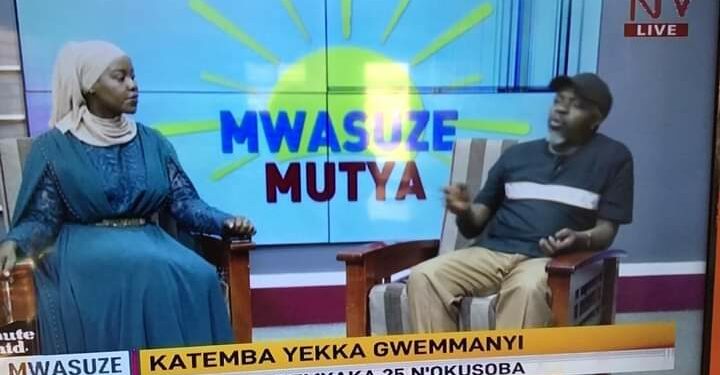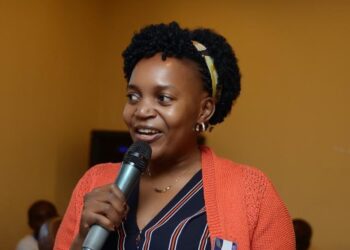When an artistic luminary like Raymond Rushabiro is interviewed, I want to know 1. What he has achieved professionally 2. Where he is now 3. Who has influenced him 5. What challenges he has faced, is still facing 5. Where he wants to be 7. What needle he feels he can still move 8. What words of wisdom he wants to impart to those who might look at the life of acting and music.
Working without notes, Faridah Nakazibwe barely probed any of that, opting instead for a rambling, meandering, unstructured conversation that gave us hardly any new insights into or about an acting veteran of 25 years. I learnt, for instance, that Rushabiro’s favorite dish is potatoes and beef. Nice to know but why is that relevant to anyone who hasn’t been hired to prepare his lunch?
One way to tell that an artist is not doing as well as s/he would like is when they dwell inordinately on nostalgia. I met so and so, and I have pictures to prove it, I have ever chatted with YY on WhatsApp, I have visited XX countries in Africa, I was once invited to audition for Disney … wistful stories of great things that nearly happened, past glories that hardly anyone noticed, and regrets that everyone did. Successful artists talk about events that have shaped them, the impact they have had, what they are still doing to move current events, and what they still plan to do before the grim reaper strikes. It is the interviewer’s job to get them to reveal all that to the viewers.
Faridah Nakazibwe didn’t help matters when she called Anthony Hopkins, the British actor, John Hopkins. Both she and Rushabiro went with that name. Rushabiro then asked her about a producer and she admitted that she didn’t know him. But he was/is a producer of a show she had asked him about. Faridah hadn’t done her homework.
Many Ugandan artists over a certain age revel in name-dropping dead or forgotten stars, regaling listeners with nebulous laurels, and talking about pending great opportunities that are never guaranteed because you don’t have the part until you have it. I believe the majority of Uganda’s entertainers have not got the acclaim, credit, and remuneration they deserve because we still look at stage and screen acts as light, fluffy, frivolous, pursuits – katemba.
Unaware of or disinterested in the months, days, and hours (sometimes 18-hour-days on the trot) that go into even the simplest stage productions, we think acting is little more than banter, and musical shows are about artists going on stage to enjoy themselves. It doesn’t help, either, that artists can’t seem to keep their seamy private lives private, leading to their relationship sagas making the enduring headlines, and overshadowing their artistic exploits. To compound it all, any serious productions are privately funded because Uganda’s government shows scant interest in the arts. If you don’t believe this, pay a visit to and observe the state of Uganda’s National Theatre.
Finally, here is some presumptuous, unsolicited, advice to Faridah Nakazibwe: prepare, prepare, prepare. Have the background of the guest fully researched, bullet your talking points, anticipate the tangents your guest might want to go off at, and how you will keep them on track. Have a clear agenda about what you want your interview to achieve, what insights you want your viewers to take away, and focus like a laser beam on just that.
Do you have a story in your community or an opinion to share with us: Email us at editorial@watchdoguganda.com













